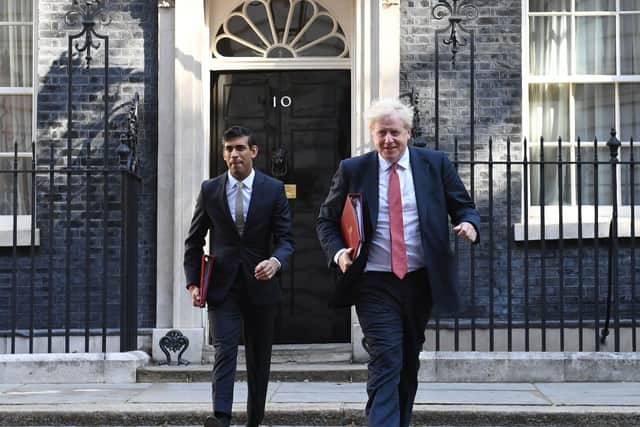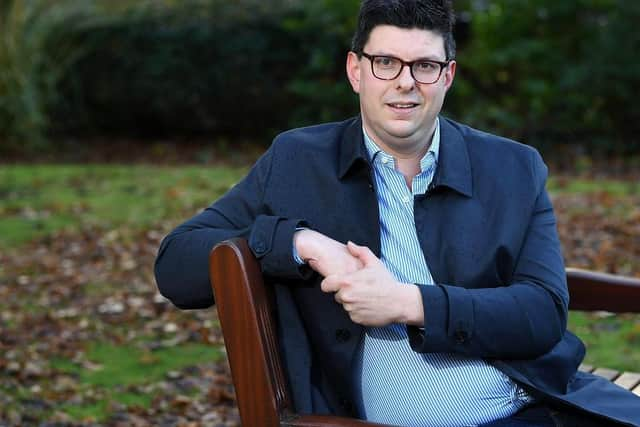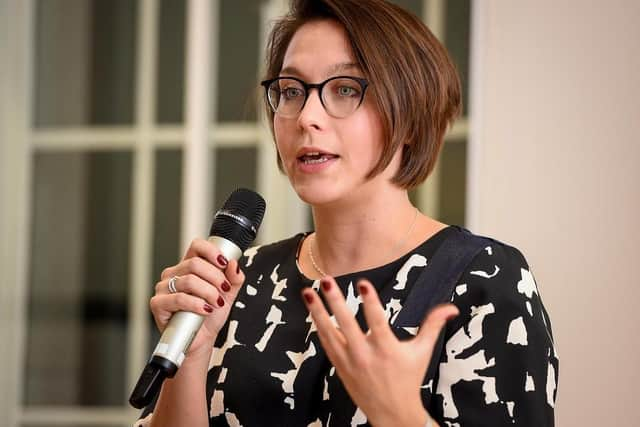Call for increased Northern focus to improve social mobility gap and improve children’s futures
The Northern Powerhouse Partnership (NPP) director Henri Murison’s call to action comes as the Social Mobility Commission has warned today families face being locked into disadvantage for generations unless the issue of social mobility is urgently tackled.
The commission has called on regional leaders to draw up tailored, sustained and local programmes to boost social mobility in the worst areas - in the report this lists Bradford, Kingston-upon-Hull and Kirkless in the region.
Advertisement
Hide AdAdvertisement
Hide AdMr Murison said: "The challenge of poor social mobility is a result of the educational and wider barriers to opportunity in many communities, with three quarters of the least socially mobile areas in England in the Northern Powerhouse."


Coun Susan Hinchcliffe, Leader of Bradford Council, added: "I think it’s a national scandal that you can be disadvantaged in life from birth depending on your postcode.
"COVID-19 has just served to emphasise this divide with people in lower socio-economic groups much more likely to contract the virus."
The Commission also wants the Government to extend its current Opportunity Areas programme, which gives support to 12 councils, including Doncaster, Bradford and the North Yorkshire Coast in Yorkshire, to include several more authorities identified as the areas with the most entrenched disadvantage.


Advertisement
Hide AdAdvertisement
Hide AdAnne-Marie Canning MBE, the chair for the Bradford Opportunity Area, said: "Bradford is the youngest city in the UK, so if you don’t get life chances right for Bradford, that is very serious - we are talking about thousands upon thousands of children, where we lose their talent and they don’t have the opportunities that they deserve.
“I’m not surprised Bradford is there... Going forward it’s about focusing resource and effort in to the places we know need it the most.”
Coun Hinchcliffe added: "Here in Bradford we’re fully committed to turning this around.
"To support our work in education the Opportunity Area funding has been very welcome as a way of supporting disadvantaged pupils, but we need more financial investment from government over a sustained period to help tackle the deep-rooted poverty that limits opportunities for many."


Advertisement
Hide AdAdvertisement
Hide AdThe areas with the worst social mobility also include Chiltern, Thanet, Bolton, Wolverhampton, Fenland, Mansfield, Walsall, Gateshead, St Helens, Dudley, Bolton and Wigan, the report says.
It adds that in these areas, those from disadvantaged backgrounds and who are entitled to free school meals have little chance of making a better life for themselves or their families and earn much less than their more affluent peers.
Ahead of the Spending Review Mr Murison said it was vital for the Government to ensure Pupil Premium is “properly funded and targeted” at the most disadvantaged children.
He said: "By focusing support at closing the disadvantage gap, schools will be better equipped to help pupils swim against the tide of issues affecting their families and help them realise their true potential."
Advertisement
Hide AdAdvertisement
Hide AdThe study also found individuals aged 28 from disadvantaged families in these council areas earn on average just over half the amount of those from similar backgrounds in the most mobile areas.
Interim co-chair of the Social Mobility Commission Steven Cooper described the findings as “very challenging”.
“They tell a story of deep unfairness, determined by where you grow up. It is not a story of North versus South or urban versus rural; this is a story of local areas side by side with vastly different outcomes for the disadvantaged sons growing up there,” Mr Cooper said.
The research, carried out by the Institute for Fiscal Studies (IFS) and UCL Centre for Education Policy and Equalising Opportunities (CEPEO), also found that in areas of low social mobility, up to 33% of the pay gap is being driven by family background and local market factors more than educational achievement.
Advertisement
Hide AdAdvertisement
Hide AdIt added that “cold” social mobility spots often have fewer professional and managerial occupations, fewer outstanding schools, higher levels of deprivation and moderate population density.
Councils with the lowest earnings for disadvantaged individuals include Bradford, Hyndburn, Gateshead, Thanet, West Devon, Sheffield, Malvern Hills and Kensington and Chelsea.
Professor Lindsey Macmillan, director of the CEPEO at UCL and research fellow at the IFS, said: “This new evidence highlights the need for a joined up-approach across Government, third sector organisations, and employers.
“The education system alone cannot tackle this postcode lottery - a strategy that considers the entire life experience, from birth through to adulthood, is crucial to ensuring fairer life chances for all”.
Advertisement
Hide AdAdvertisement
Hide AdLaura van der Erve, research economist at the IFS and co-author of the report, added: “Not only do children from disadvantaged backgrounds have considerably lower school attainment and lower adult earnings than their peers from more affluent backgrounds, we also find large differences in the outcomes of children from disadvantaged backgrounds across the country.
“This highlights that children’s opportunities in England are still defined by both the family they were born into and the area they grew up in.”
In earlier developments
As part of a special investigation by The Yorkshire Post, ahead of Rishi Sunak’s spending review in September, opportunity areas across the region spoke of the success and challenges they have endured since the pioneering education scheme was rolled out in 2016 and added pressures faced due to limited funding before, during and in the recovery of the coronavirus.
Read the full investigation here. _____________________________
Advertisement
Hide AdAdvertisement
Hide AdSupport The Yorkshire Post and become a subscriber today.Your subscription will help us to continue to bring quality news to the people of Yorkshire. In return, you'll see fewer ads on site, get free access to our app and receive exclusive members-only offers.
So, please - if you can - pay for our work. Just £5 per month is the starting point. If you think that which we are trying to achieve is worth more, you can pay us what you think we are worth. By doing so, you will be investing in something that is becoming increasingly rare. Independent journalism that cares less about right and left and more about right and wrong. Journalism you can trust.
Thank you
James Mitchinson